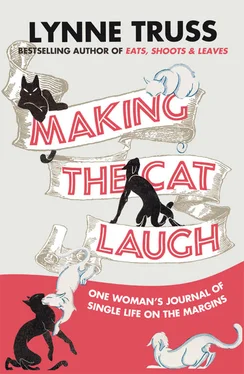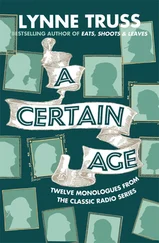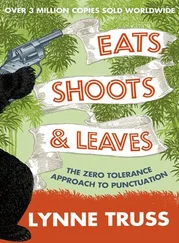If this sounds self-pitying and morbid, it is nevertheless something that single people very often joke about; the collective single mind contains a whole sub-section labelled: ‘What if I died?’ ‘Thanks for the present,’ they say, ‘but what if I died, and somebody found the room stacked to shoulder height with twenty-five years’ worth of Pet Fish Monthly ?’ I remember a woman once proudly describing to me how she had rescued herself from acute self-consciousness by assembling a library of pop psychology books, with titles such as 101 Ways Not To Care What Other People Think. The effect of these books had been miraculous she said; she had been transformed into someone who did not give a damn. I was impressed, and asked her to check the publishing details. ‘Oh, but I threw them all out, in the end,’ she said in a lowered voice. ‘I mean, what if I died and people came in and found a load of books with titles like those?’

The day that I became single again – some time last August – I felt it was important to perform some symbolic acts. After all, I reasoned, you never know when a social anthropologist might be watching. I tried to picture what a newly single woman would be expected to do, to mark the reclaiming of the living environment after years of cohabitation. Washing the walls and beating the carpets sounded the right kind of thing – but on the other hand it also sounded a bit strenuous, and I didn’t want to alarm the cats.
So perhaps, instead, the newly single woman might do a little light tidying? Form the old newspapers into distinct new piles? Pick up the dusty used tissue that she always stared at, mindlessly, through hour-long telephone conversations? This all seemed manageable, given the emotional circumstances. Oh yes, and she might ceremoniously replace the lavatory seat to its ‘down’ position, with an exaggerated flourish and a round of applause. This was ample Coming of Age in Samoa stuff for a single afternoon.
But I remember that the first evening I was also moved to root through a heap of books until I found Anthony Storr’s Solitude. This was a book I had wanted to read for a very long time; and I felt I should seize the moment. I read it avidly until 9.30pm, after which I left it unopened on the coffee table for the next three months, hoping that some of its inspiring message would miraculously buoy my spirit. I don’t know why I stopped reading. People must have thought I was a real stoic, savouring a book called Solitude over such a long period. Either that, of course, or that I couldn’t read without moving my lips.
Storr thinks that solitude has much to recommend it. He says it promotes creativity – making people write novels, and so forth. Look at Anita Brookner, Edward Gibbon and, er, many, many others. Interestingly, a large proportion of our philosophers turn out to have been lonely miserable gits who walked about wearing buckets on their heads.
There was something wrong with the appeal of this argument, but I couldn’t put my finger on it. Months later, however, I do still hold out hope that the novel-writing and world-class philosophy stage will bounce along nicely when the time is right. I have bought a few note-pads, just in case. And a cardigan. The only trouble is that at the moment I can’t seem to pass a rather more mundane stage in the experience of solitude. I can’t seem to overcome my excitement at being able (at long last) to listen to The Archers without having to do it in the shed.
I never accepted the idea that ‘love means never having to say you’re sorry’. In my own case, love invariably means never being allowed to listen to The Archers – and in fact saying ‘Oops, sorry, I’ll turn it off then, shall I?’ when discovered in the guilty act. I kept faith with The Archers during three solid years of strict prohibition, just waiting for the day when I could again turn the theme tune up to maximum volume, as a statement: ‘Yes, I love The Archers, and I’m proud.’
My fanaticism may have been forced underground, but it remained resilient, like the French Resistance. I take this as living proof that inside every cohabiting person there is a single person humming ‘Dum de dum de dum de dum’ waiting to get out.
The more I think about it, the more I impress myself – the clever ways I found to mask my addiction. I remember those Sunday mornings when I would grab the car-keys at around 10.13am, saying, ‘Just popping down to Croydon for the Sunday papers, dear. I shouldn’t be more than, oooh, let’s say an hour.’ And I would dash off and sit in the car with dark glasses on, agog to the omnibus edition on the car radio. I don’t suppose the boyfriend ever suspected anything – although he did say: ‘Why are you taking a flask of cocoa?’ and ‘What’s wrong with buying them from the man on the corner?’
I expect the Archers euphoria stage was something Wittgenstein went through, too – and Edward Gibbon, I shouldn’t wonder. The other novelties certainly wore off, in time. The tidying of newspapers, for example, started to look like a mug’s game, so I ditched it. I expect I can call in a specialist with a fork-lift truck when I can’t kick a path to the window any more.
For a while, too, I made a point of playing records with significant words – ‘I’m Gonna Wash That Man Right Out of My Hair’; also ‘I’m Still Standing’ by Elton John – and lectured friends on the potency of cheap music.
But now the flat is sometimes eerily quiet, and I rattle around in it, like a lone Malteser in a shoebox. It is an odd thing, this single life. And Gloria Steinem’s famous feminist axiom – that a woman without a man is like a fish without a bicycle – has been of strangely little comfort. I agree with the sentiment, but I wish she had chosen a different image. Unfortunately I find it very easy to imagine a sardine on a mountain-bike joyfully bowling along country lanes; or a tuna in a yellow jersey winning the Tour de France on the happiest day of its life.
One of the consolations of getting older is that one day you look in your address book and find you have acquired a list of specialists (hairdresser, mechanic, hypnotherapist, carpet-layer) whom you can mention in conversation and pass on to your friends. ‘Try my Ear, Nose and Throat man,’ you say, offhandedly. Or, ‘My acupuncturist knows an aromatherapist who recommends a plumber who could really help you with that!’ Gosh, it makes you feel sophisticated. And at the same time, of course, it helps you fill the rather big address book (with pussy-cats on) that somebody gave you for Christmas.
I now have a builder, a carpenter, a gas man, and a painter and decorator. Most exciting of all, however, is the handsome ‘24-hour emergency gardener’, whose services I unfortunately rarely need. I sometimes think of him in the small hours, though, and picture him trouble-shooting in a dark garden somewhere, lashing daffs to splints in a high wind, looking Lawrentian. Should I call up with a bogus middle-of-the-night problem? ‘Thank God you’re there!’ I might say, feigning a verge-of-tears voice. ‘It’s – er, a 24-hour emergency! And here I am, clothed only in these – er, diaphanous jim-jams, unequal to the struggle with the elements!’
The only glaring hole in my list of blokes is under ‘window cleaner’, because the local chap simply refuses to clean my windows, on the grounds (I think) that I didn’t register with him in 1948. ‘Excuse me,’ I say periodically, pretending that the idea is quite a new one, and that we have never had the conversation before. ‘You wouldn’t do my windows, would you?’ He looks down at me from his position on the ladder, and just says ‘No’, but he packs the word with an impressive degree of hostility and affront. My question seems to offend him; I don’t know why. I mean, he is a window cleaner.
Читать дальше













